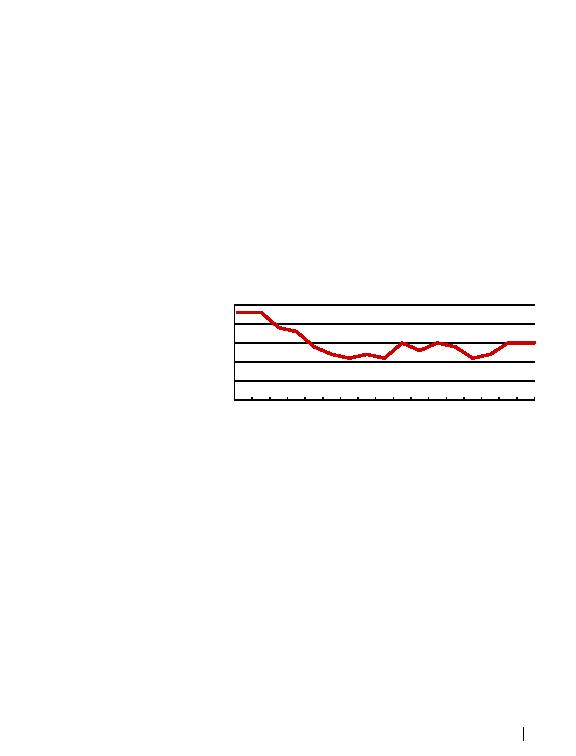
20% of all American children, up from 14.3% in 2009
and at its highest level since 1993. Before President
Lyndon Johnson initiated the war on poverty in 1965,
about 25% of the population lived in poverty. Since then,
the rate has remained relatively consistent, fluctuating
between 11 to 16 percent. According to a 2007 study,
children born to parents in the bottom fifth of income
distribution remain at the bottom. Researcher Margaret
Simms, a director of the Low Income Working Families
Project at the Urban Institute, notes that "it's a much
harder climb for people to get out of poverty and into
opportunity than it is for people who've got opportu-
nity already... the odds of advancing
economically are not in your favor if you
start out life with few resources."
middle class. With the advent of the
information age, globalization, decrease
in manufacturing and private and public
policies, the median household net worth
has dipped from $73,000 in 1983 to
$57,000 in 2010. Income inequality has
been growing for almost three decades,
with one � half of all income in the earned
by households in the top twenty percent.
ing of salvation as a corporate as well as individual
experience and endeavor. The call to love the Lord your
your neighbor as yourself, informs character and
of America are built. America is true to her foundations
dignity, called to contribute to the greater good. In such
a society each person is a partner committed to advancing
the full salvation that originates in Him and that He
makes plain and attainable through His Son, who
became one of us.
but the spiritual and psychological costs associated
and stunted development. After Darlena and her husband
bought a house in early 2008, market crashed. Their
twins were born six weeks premature. Her husband
lost his job. They couldn't pay their mortgage. "The most
embarrassing part was how I felt about myself," she
assistance. "I had so internalized the message of what
poor people should or should not have that I felt
ashamed to be there, with that car, getting food."
degraded, the body politic suffers.
Such a courageous commitment is something poet
young nation.
" ...the hourly routine of your own or any man's life, the
me... you and your soul enclose all things, regardless of
estimation... All parts away for the progress of souls...
before the procession of souls along the grand roads of
the universe... I will make the most splendid race the
sun has ever shone upon, I will make divine magnetic
lands, with the love of comrades."
in the day laborer and the banker, in mothers and
and Economic Supplements.